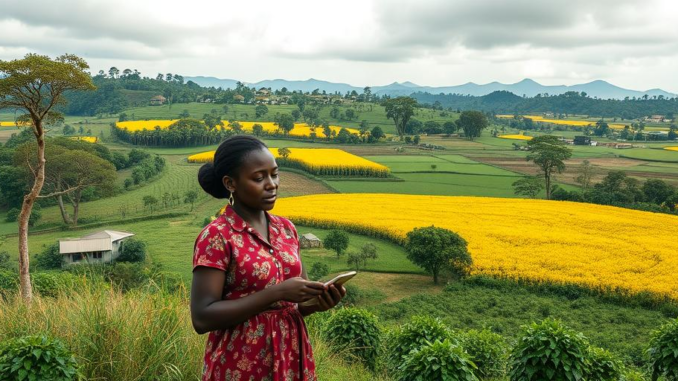
Summary
This article explores Rwanda’s innovative approach to managing type 1 diabetes in youth, focusing on digital health advancements and educational camps. The integrated strategy emphasizes patient empowerment, data-driven insights, and community support. It highlights the successful implementation of an electronic medical record system and the positive impact of summer camps on self-management skills.
Start with a free consultation to discover how TrueNAS can transform your healthcare data management.
** Main Story**
Rwanda is really showing the world what’s possible when it comes to healthcare innovation, especially in managing type 1 diabetes (T1D) in young people. After the devastating 1994 genocide, Rwanda faced a growing diabetes crisis. But, the Rwandan Ministry of Health, working with organizations like the Rwanda Diabetes Association (RDA) and the World Diabetes Foundation (WDF), stepped up with a smart two-part plan. They’re using digital health tech and running educational summer camps, and it’s making a real difference. This isn’t just about basic care, it’s about building a strong community for these young people.
Digital Health: Giving Power to Patients and Doctors
So, what’s the key to Rwanda’s progress? Well, one big part is the nation’s first electronic medical record (EMR) system, designed specifically for T1D. And it’s not just some generic software – healthcare pros, RDA staff, even the patients themselves had a hand in designing it.
Think about it, a user-friendly platform that actually understands the needs of everyone involved. It makes data collection easier, which means better, more reliable data. And that means personalized treatment plans are actually possible. The EMR system also spits out reports automatically, which helps with following up with patients, spotting disease patterns, and making smart policy decisions.
It’s addressing a major problem. Before, there was this huge data gap that made managing T1D effectively a real struggle. This system gives us unprecedented insights into the disease and makes sure everyone gets the right care. Frankly, I think its brilliant.
Educational Summer Camps: Building Confidence and Connection
But it doesn’t stop there. The RDA also runs summer camps, and these are way more than just medical check-ups. They’re a mix of diabetes education, outdoor fun, one-on-one counseling, and even life skills courses – things like avoiding drug abuse, understanding reproductive health, and learning about entrepreneurship.
Between 2020 and 2024, around 300 young people went to these camps, and it was a total game-changer for them. They learned how to manage their own blood sugar levels, adjust their insulin, and, basically, take control of their health.
Beyond that, the camps create a place where they can connect with others who know what they’re going through. Peer support is massive, you know? It gives them a sense of community when they’re dealing with something like T1D. It also can prevent the lonlieness that comes with the disease.
What’s Next? Looking Ahead
We’re seeing the impact of all this in better blood sugar control for the kids who attend the camps. That statistically significant decrease in HbA1c levels is hard to ignore. Plus, the EMR system lets doctors keep track of how patients are doing, spot trends, and fine-tune their treatment.
What Rwanda’s doing proves that data and community support can truly change lives for people dealing with chronic conditions. By the end of March 2025, Rwanda’s approach is inspiring countries everywhere, especially those with limited resources, and I think it’s great.
It shows how putting digital health tools together with community programs can empower patients, strengthen healthcare systems, and, ultimately, make people healthier. It’s not perfect, but it’s a really good start. And who knows, maybe this model will transform other areas of healthcare too. I know I for one am hoping it does.


Be the first to comment